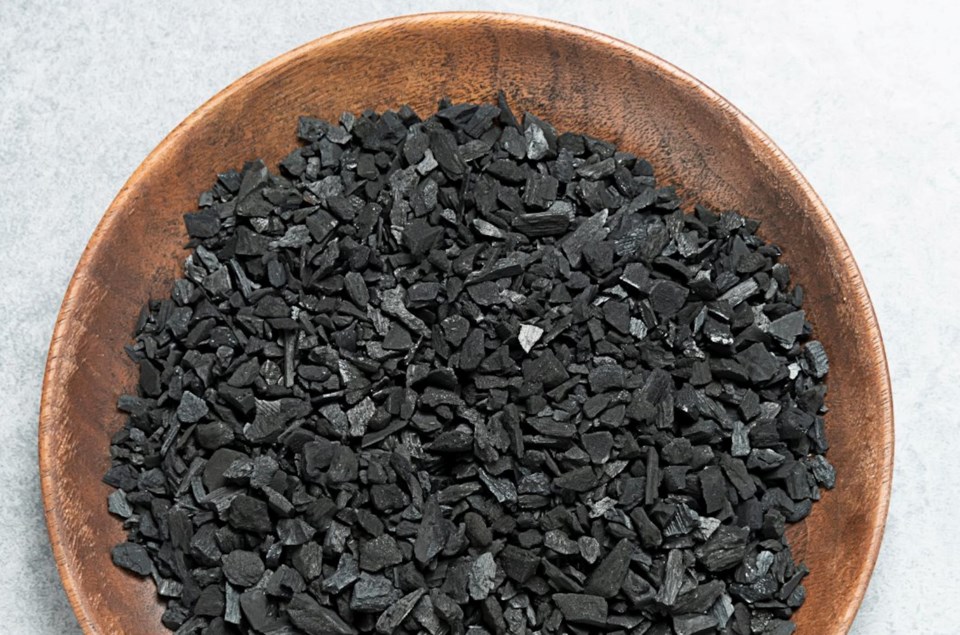The gold mining town of Kirkland Lake and northwestern Ontario will be host sites for a leading edge, value-added forest products venture involving a Niagara technology company that converts woody biomass into renewable natural gas and bio-coal products.
CHAR Technologies has received $5.2 million from the federal Clean Fuels Fund to advance detailed engineering studies and design work for two proposed wood waste conversion facilities in Kirkland Lake and the Nipigon area.
At a press conference today, CHAR’s Thorold processing hub on the Niagara Peninsula was the site for federal energy and natural resources minister Jonathan Wilkinson to announce $15 million in investments for similar facilities in Quebec and Alberta.
The company has a pyrolysis process that makes renewable natural gas and bio-coal products from wood fibre residue that has heavy industry applications.
In advance of construction, CHAR TECH CEO Andrew White said in an interview that they have ambitious timelines and expect to pour foundations late this summer or early fall for processing plants in Kirkland Lake and in Hurkett Township, the latter is situated halfway between Nipigon and Thunder Bay.
White called the funding “an important milestone and next step” that will move these two projects forward.
CHAR's high temperature pyrolysis (HTP) technology transforms organic waste, like woody biomass, into a hydrogen-rich syngas that can be used as a replacement for natural gas, and also a biochar product, which can be used as a biocarbon to replace the use of fossil coal in steel making.
ArcellorMittal Dofasco likes the biocarbon product so much that the Hamilton steel company invested $6.6 million last July in CHAR’s technology to move toward larger scale trials in the coming years.
Both northern sites will be developed in parallel. CHAR Tech is still putting together a larger financing package to press forward with plant construction at an undetermined date. Each plant is roughly price-tagged at about $60 million each.
Built in modular fashion, the company will start with two kilns at each site and eventually scale up the facilities to as many as six units.
Ten operational jobs will be created during the initial roll-out at each site, with more opportunities to follow in maintenance as the plants expand. They’ll be indirect jobs created in harvesting and in logistics to transport woody fibre to the plant site.
Last month, the Town of Kirkland Lake sold a property in its Archer Drive industrial park to CHAR, which intends to source biomass and wood residuals from the area.
White said his technology company has no intention of being in the harvesting and forestry business. It’s why they are seeking area partners to help supply and coordinate material to the plant.
He said they’ll draw from a biomass catchment area roughly within a 200-kilometre radius of the two facilities.
The company has strong backing from the Town of Kirkland Lake.
The new technology element is what council first embraced when White and the company first appeared before council in September 2021, said Mayor Stacy Wight.
Council hitched onto the idea of diversifying the local economy and supported the company with letters of support to government funding agencies.
"It was new technology,” said Wight. “Kirkland Lake has always been kind of innovative. We’ve always been able to think outside of the box.”
With no development charges, Wight hopes CHAR’s arrival will lure other like-minded companies to town.
“We’ve always been on the cutting edge many times in the past and we’re really looking forward to what this is going to spawn in the future. All you need is that one company to come, and have success, and we believe more will come.”
In the northwest, CHAR’s project partner is Lake Nipigon Forest Management (LNFM), a cooperative of four local First Nations on the north shore of Lake Superior.
To assist the Indigenous partner, the Ontario government made a funding splash this year for LNFM to support CHAR.
White said the two northern facilities will build upon the template of the demonstration-scale facility they’ve created in Thorold. But the northern plants will be more scalability due to the greater availability of biomass in the region.
The Thorold conversion plant is in the early stages of production, generating some material, with commercial-scale equipment arriving this summer to move toward building a larger scale unit.
“The Kirkland Lake project will be a lot of copy-and-paste from the Thorold project, the big difference being the capacity to expand Kirkland Lake…because of the biomass available,” said White.
Engineering is already underway. The federal funding, he said, will allow them to move into 3-D rendering, site plans, and carry out what's necessary for facility permitting and to secure larger project financing.
White declined to name potential customers for their Northern Ontario plants, but said in a previous interview that remote mining operations could use their gas product. At Nipigon, their biochar product could be loaded onto barges for end users in the steel industry.
On their growth plans in Northern Ontario, White said there remain a couple of opportunities to place more facilities in gaps along the Highway 11 and 17 corridor between their two sites.




